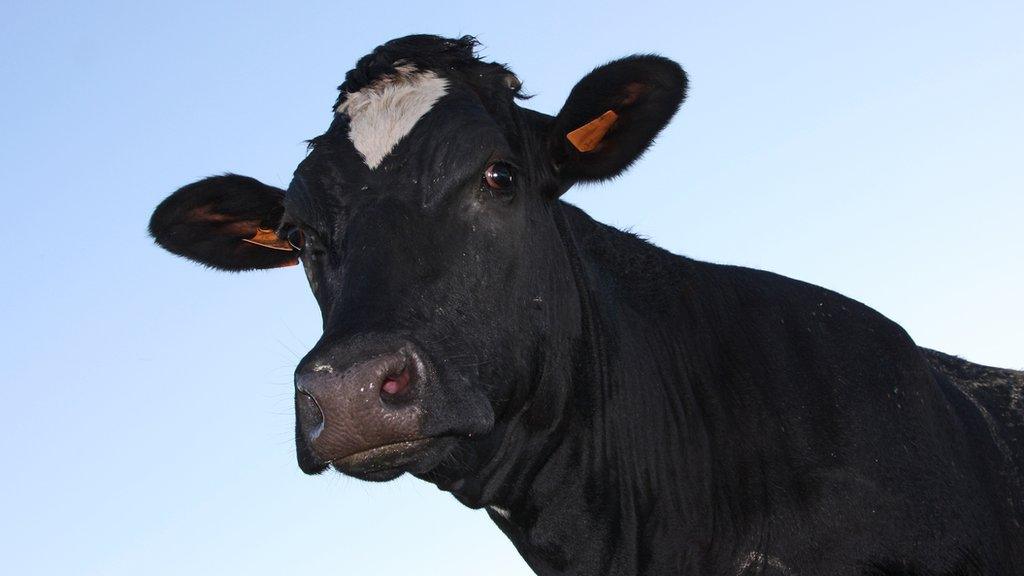Brexit 'opportunity' to correct farm funding 'failings'
- Published
- comments
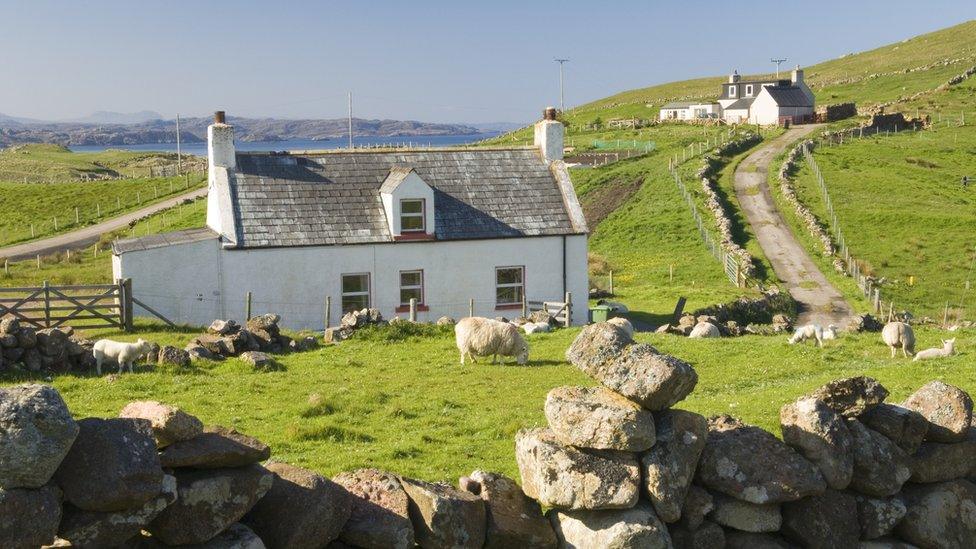
The committee said the existing system failed to support crofting
The UK government should use Brexit as an opportunity to "rewrite" unfair agricultural funding rules, according to MPs.
MPs on Westminster's Scottish Affairs Committee said leaving the EU presented a chance to address failings in the current formula.
A report said the Common Agricultural Policy (CAP) had led to Scottish farms and crofts receiving low funding.
The UK government insisted Scotland would get a better deal after Brexit.
The report urged ministers to move away from an "outdated method" of allocating money.
Workforce pressures
The committee said the current funding formula had "failed to reflect Scotland's unique agricultural conditions and practices".
It recommended a new system under which a nation's proportion of less-favoured land was key to determining how much funding it receives.
This would ensure farmers and crofters working in challenging conditions received the most support.
The MPs also expressed concern that the UK government's pilot seasonal agriculture scheme was insufficient to meet demand for labour in Scottish farms.
At present, it only allows for 2,500 workers to come to the UK. The committee suggests this be raised to 10,000.
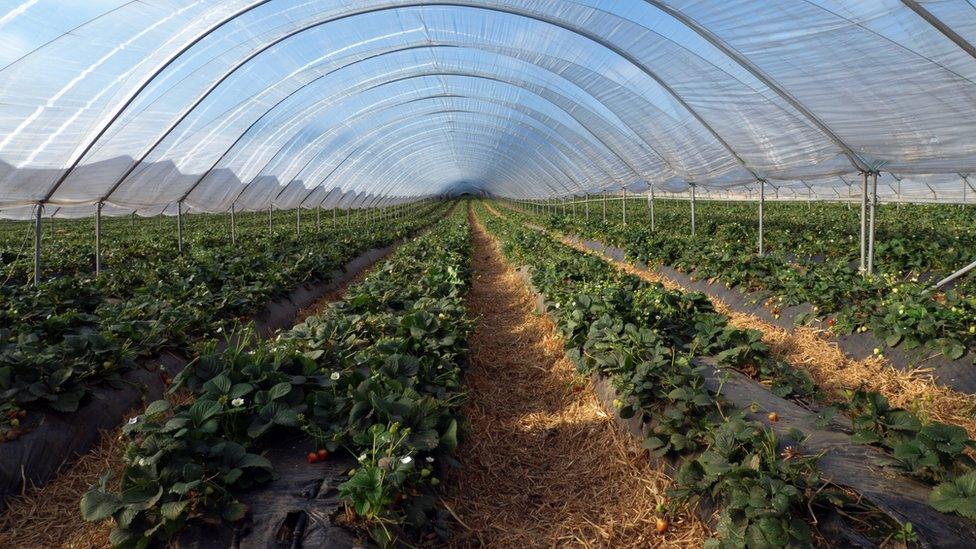
The MPs are worried about a shortage of seasonal workers for sectors such as fruit farming
It also recommends scrapping application and visa interview fees to increase uptake of the scheme.
Another concern is that a £30,000 salary threshold for skilled workers wanting to work in the UK could lead to a shortage of non-UK workers in areas such as veterinary medicine.
Committee chairman Pete Wishart said: "Scotland has some of the most challenging farming environments in the UK and yet Scottish farming is the cornerstone of the Scottish food and drink industry, and farms and crofts remain central to many thriving communities.
"It is nonsensical that funding through the CAP has not recognised these challenging conditions, so my committee is calling on the UK government to take Brexit as an opportunity to rewrite the rules of agricultural funding.
"A country's environmental conditions and situation should be a central tenet of its funding settlement.
"If the UK government accepts this principle, Scotland will be likely to receive a significantly greater proportion of funding, allowing the agricultural sector to realise its full potential."
'Change for the better'
Mr Wishart added: "The government must also do much more to resolve the workforce crisis on Scottish farms.
"The seasonal workers pilot must be quadrupled in size if it has any chance of addressing this.
"The uncertainty surrounding no-deal tariffs and future of geographical indications must also be resolved so Scotland can be confident its agriculture sector will be protected and enhanced post-Brexit."
The UK government said the recommendations of an independent review on how funding should be allocated would be published soon, and would take into account the unique farming environments in certain parts of the UK.
A spokesman said: "For years, British farmers have been given a poor deal by the EU's Common Agricultural Policy, which is why we want to change things for the better.
"As the prime minister has said, once we are out of the EU, we will have a historic opportunity to introduce new schemes to support farmers - and we will make sure that Scotland gets a better deal."
Tailored migration policy
Scotland's Rural Affairs Minister Mairi Gougeon said the seasonal and temporary programmes proposed by the UK government would "prohibit longer-term settlement" of migrants working in agriculture, and strengthened the case for Scotland to have the power to tailor its own migration policy.
Ms Gougeon said: "We have been clear that we are not opposed to UK-wide frameworks in principle, where they are in the interest of Scotland.
"However, this must be done with respect for devolution and via agreement, not imposition.
"A no-deal Brexit is by far the biggest threat to farming and to our food and drink sector."
- Published9 April 2019
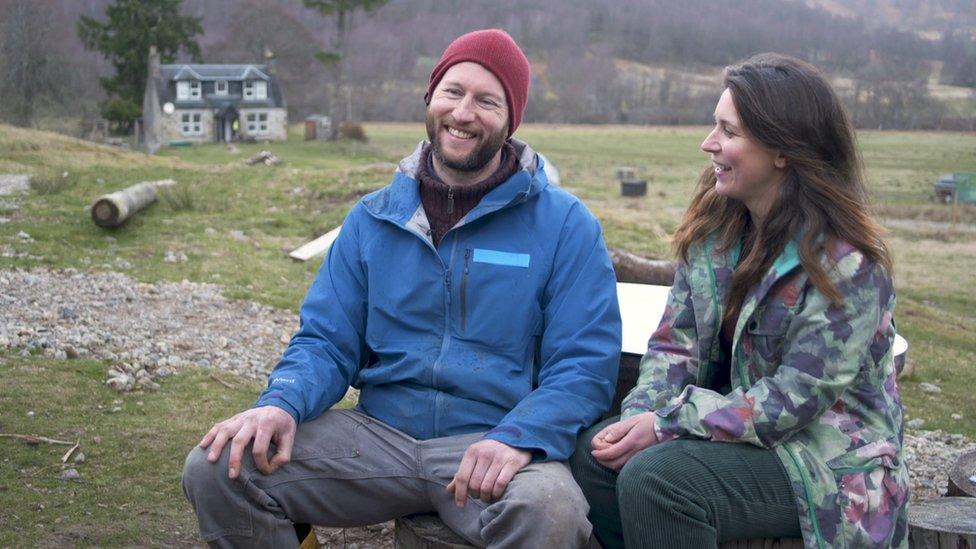
- Published28 November 2018
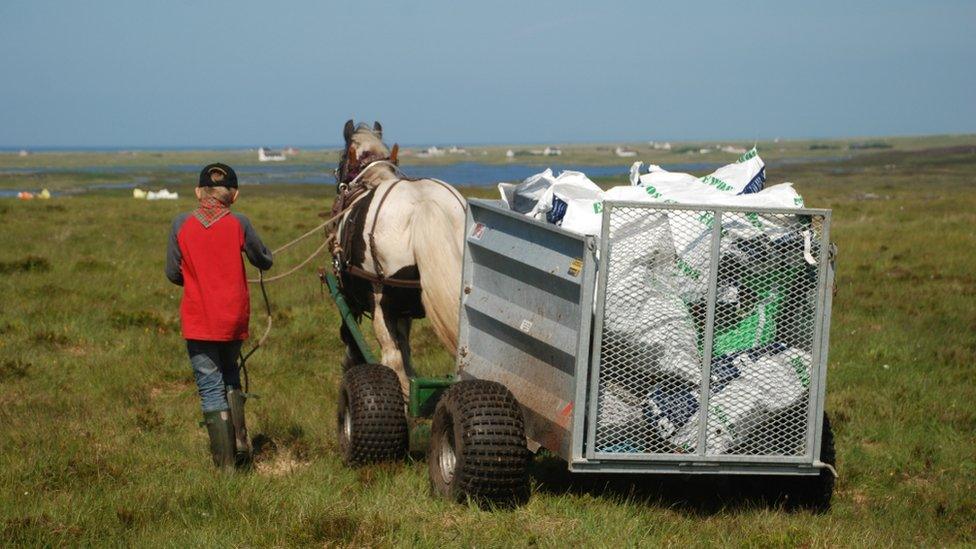
- Published30 July 2018
